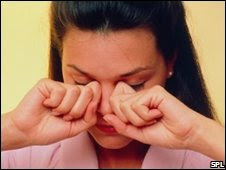 Independent travel information website, Travel-bite, recently published a tips article with a rather doom-mongering tone in regards to traditional high street travel agents last month.
Independent travel information website, Travel-bite, recently published a tips article with a rather doom-mongering tone in regards to traditional high street travel agents last month.It stated that the rise of Buy-It-Yourself holiday packages were replacing the work that agencies would carry out in the past. But how exactly is the internet changing how we plan our holidays? And how is it set to change further?
Companies such as travel-bite offer a similar range to each other, varying from hotels and flights as well as transport; which give the consumer the opportunity to shop around quickly and simply - and at their own discretion. These online travel agents have no doubt grown in popularity but if you are looking for an even cheaper deal, it is probably best to go to a specialist airline tickets seller online - to get that lucky last minute deal.
However, when it comes to cheap travel insurance, travel-bite.co.uk goes into little depth other than the importance to shop around, or to consider your local post office.
Interestingly, many companies have jumped onto the cheap travel insurance bandwagon on the web with an immediate ten per cent discount if you purchase online, and a range of travel insurance offers including annual, single trip and additional cover for holidaymakers hoping to hit the piste.
So is the internet really killing off the high street travel agent? A few years ago, The Independent published an article denying that there was a risk to travel agents, arguing that consumers were still willing to plan their holiday, and to pay a little bit more, if they are going to be able to sort it quicker or discuss it with someone face to face.
This was certainly a fair point then, yet with these financially tough times upon us (and its knock on affect on the appeal of some destinations) it might now seem that the pull of finding a good deal on the internet is getting ever stronger. And with more choice on the net, and an improving web-presence of trusted household names, it should only increase the service satisfaction of customers booking their holidays this way during the following winter months.
















